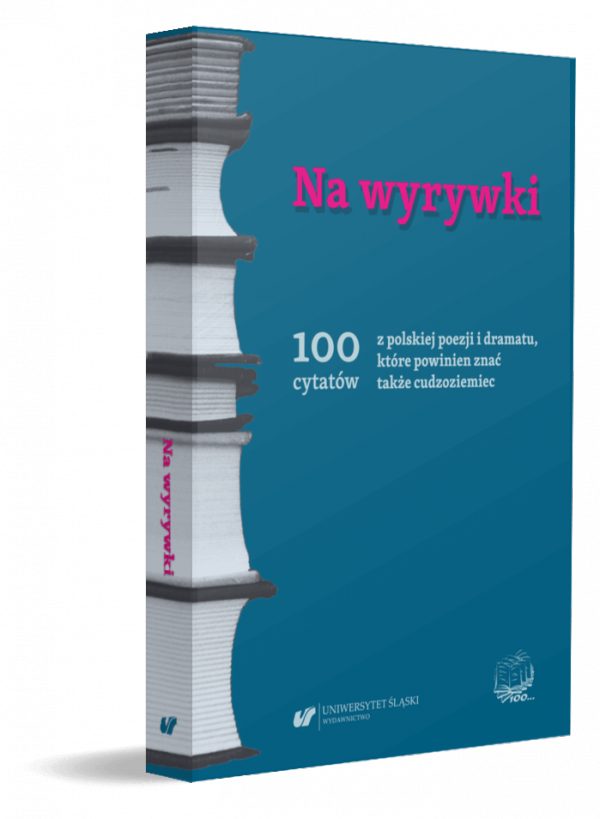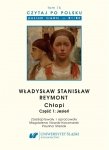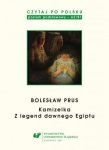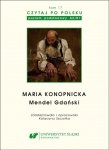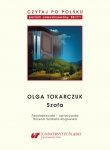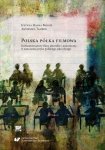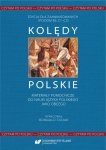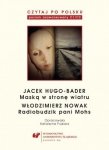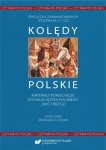-
Załączniki bezpieczeństwa
Załczniki do produktuZałączniki dotyczące bezpieczeństwa produktu zawierają informacje o opakowaniu produktu i mogą dostarczać kluczowych informacji dotyczących bezpieczeństwa konkretnego produktu
-
Informacje o producencie
Informacje o producencieInformacje dotyczące produktu obejmują adres i powiązane dane producenta produktu.Wydawnictwo Uniwersytetu Śląskiego
-
Osoba odpowiedzialna w UE
Osoba odpowiedzialna w UEPodmiot gospodarczy z siedzibą w UE zapewniający zgodność produktu z wymaganymi przepisami.
Książka skierowana jest do młodzieży i może stanowić podręcznik językowo-literacki. Mówi się, że znać prawdziwie obcy język, to znać jego zasób zleksykalizowanych fraz i posługiwać się nim bez przeszkód, na wyrywki. Leksykon ma za zadanie pomóc w kształtowaniu kompetencji językowo-kulturowej w zakresie języka i kultury polskiej również cudzoziemcom. Hasła zostały zebrane w oparciu o dotychczas wydane publikacje dotyczące cytatów i skrzydlatych słów oraz ankietę przeprowadzoną wśród humanistów, czynnych polonistów uczących języka, literatury i kultury polskiej jako rodzimej i jako obcej.
Wyniki sondażu pozwoliły zweryfikować wiedzę zgromadzoną w publikacjach z poświadczonym "życiem" cytatów. Zebrane tu wyimki z różnych okresów literatury polskiej dotyczą najrozmaitszych jej obszarów tematycznych. Ogólnie można je podzielić na następujące kategorie: klasyka, poezja i dramat do początku XX wieku, poezja współczesna, pieśni patriotyczne i religijne. Jednakże wewnątrz opisu poszczególnych haseł autorzy nie odnotowują tych kategorii. Każdy cytat został opisany według stałej struktury.
Czytelnicy odnajdą tu informacje o fragmencie literackim (źródło jego pochodzenia), o autorze cytatu i jego twórczości, nawiązania, czyli odniesienie do funkcjonowania cytatu w różnych tekstach kultury - w innych wierszach, filmach, często w piosenkach, hasłach reklamowych.
W części Warto wiedzieć zazwyczaj znajdują się terminy literackie, ale często są to objaśnienia kontekstu historycznego lub politycznego. Autorzy haseł posiłkowali się też fragmentami z publikacji polskich badaczy dotyczących konkretnego cytatu, twórczości lub życiorysu artysty. Zamieszono również bibliografię, która może stanowić źródło dalszych poszukiwań dla osób zainteresowanych danym tematem. Kolejny element porządkujący hasła oraz pomocny w wyszukiwaniu cytatów, nazwisk autorów i ich źródeł to indeksy zamieszczone na końcu publikacji.
Down pat 100 quotations from Polish poetry and drama which even a foreigner should know
The book is addressed to young people and can be used as a language and literature handbook. It is said that to truly know a foreign language is to know its resource of lexicalized phrases and to use it without hindrance, on a random basis. The aim of the Lexicon is to help foreigners develop their linguistic and cultural competence in the field of Polish language and culture. The entries were collected on the basis of research published so far concerning quotations and winged words, as well as a survey conducted among humanists, active philologists teaching Polish language, literature and culture as native and foreign. The results of the survey allowed to verify the knowledge accumulated in the texts with the certified “life” of quotations.
The excerpts from various periods of Polish literature are collected here and concern a wide range of its thematic areas. In general, they can be divided into the following categories: classical poetry, poetry and drama until the beginning of the 20th century, contemporary poetry, patriotic and religious songs. However, in the descriptions of individual entries, the authors do not note these categories. Each quotation is described according to a fixed structure. Readers will find here information about a literary fragment (its source), about the author of a quotation and his works, references, that is a reference to the functioning of a quotation in various texts of culture – in other poems, films, often in songs, or advertising slogans. The “It is worth knowing” section usually contains literary terms, but they are often explanations of the historical or political context. The authors of the entries also used excerpts from the publications of Polish researchers concerning a specific quotation, work or life of an artist. Each entry also includes a bibliography, which can be a source of further research for people interested in the topic. The indexes at the end of the publication are an element that organizes the entries and helps to search for quotations, their sources and authors’ names.

 2 szt.
2 szt.
